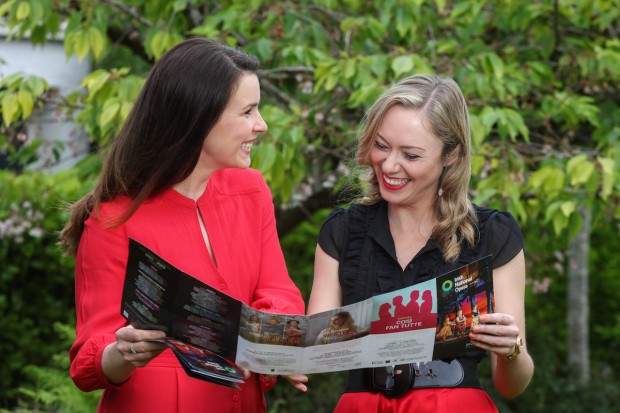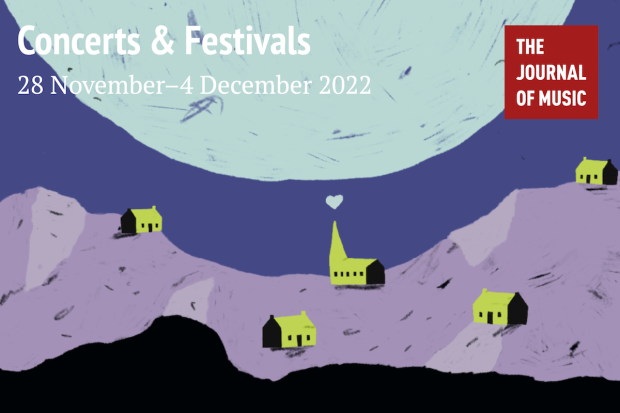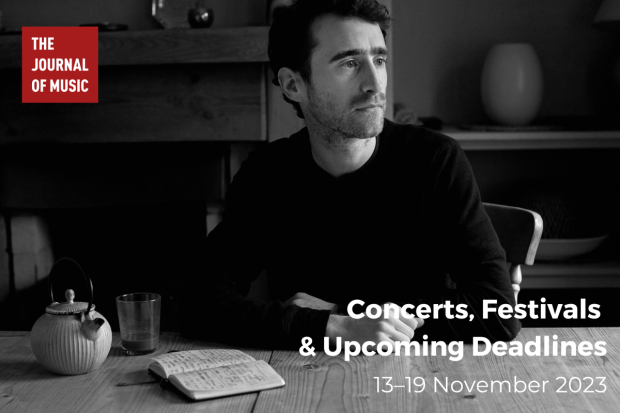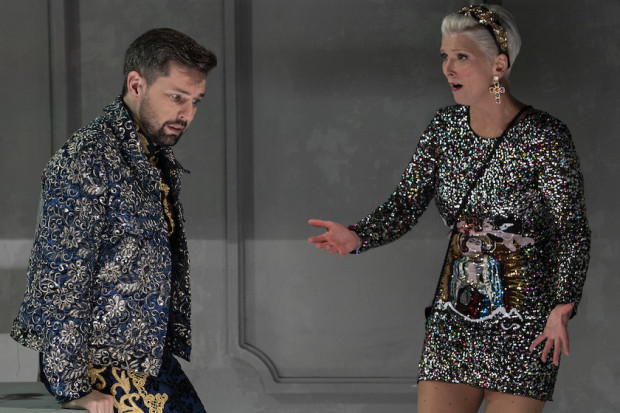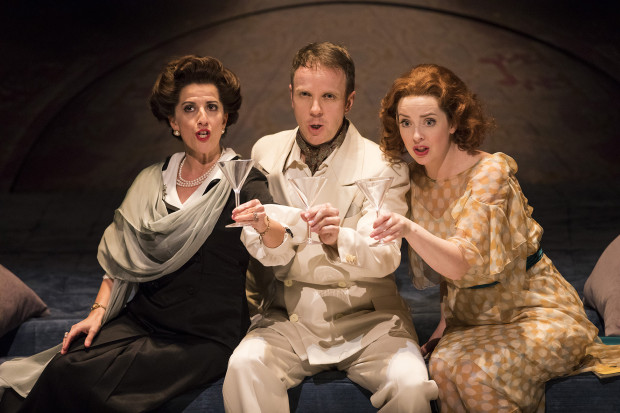
Melatu Uche Okorie and Evangelia Rigaki (Photo: Kip Carroll)
'It is a book that you don’t let down until you finish': An Interview with Melatu Uche Okorie and Evangelia Rigaki
‘… this hostel has changed drastically in recent times and everyone has turned a blind eye to it. … direct provision is like being in an abusive relationship. Abuse itself is homogenous, no matter what race, class, or in this case, the hostel of the abused.’ This is how Melatu Uche Okorie begins her collection This Hostel Life, published last year by Skein Press in Galway. It’s a slim book, with just three stories, but it’s a shocking read.
When Irish National Opera set up the INO Studio last year to develop new operatic talent (singers, composers, directors and more), composer Evangelia Rigaki applied and was invited to work on a new project. She began looking for a text to set and Fergus Sheil of INO suggested Okorie’s book. The three stories, ‘This Hostel Life’, ‘Under the Awning’ and ‘The Egg Broke’ explore life in direct provision, the importance of storytelling, and the horrors that asylum seekers are seeking to escape from in their native countries.
‘I was astonished and I read it one go,’ Rigaki told the Journal of Music. ‘It is a book that you don’t let down until you finish. It felt very sincere and honest … I could not believe that these things were happening, especially not in such a civilised country like Ireland.’
Rigaki, Okorie, director Caitriona McLaughlin and INO singers have now worked together to create what the composer calls an ‘opera installation’, which will be performed next week, 26 and 28 September, in the crypt of Christ Church Cathedral in Dublin. The work will feature sopranos Amy Ní Fhearraigh and Rachel Croash, tenor Andrew Gavin, the Parabasis Ensemble (Bill Dowdall, flute; Richard O’Donnell, percussion; and Fintan Sutton, bass clarinet), and the choir New Dublin Voices.
Eight and a half years
Direct provision was set up by the state in 2000 to house asylum seekers seeking protection in Ireland. It was initially meant to be a temporary system that would provide accommodation for six months while people awaited a decision on their application. At the end of 2018, there were 5,997 people in the system. Okorie came to Ireland from Nigeria in 2006 and spent almost a decade in direct provision before being given ‘leave to remain’.
‘In a way I think the demons of direct provision still presses one down…’ she says, speaking to the Journal of Music.
There’s still that sense of not [being] equal… and that has affected my take on Ireland… I was there for eight and a half years… so it’s going to take a while… for that to go out of my mind….
Rigaki and Okorie worked together a little on the text, but the author has let the composer use her own choices entirely. ‘Melatu was very generous,’ Rigaki says, ‘and allowed us to use her book in any way we see fit for this production.’ The composer is using extracts from all three stories plus the author’s note. The work will involve three sets of performers plus the chorus. Each group will tell one of the stories over twenty minutes, and audiences will be able to hear parts of the other stories at the same time. They can move around or take them in one by one. The full performance lasts for around 80 minutes.
Immersion
This is the fifth opera by Rigaki, who is from Volos in central Greece and has been a lecturer in composition at Trinity College Dublin since 2010. Her approach to opera and musical theatre is always to engage with the audience in some way.
This work would not work if you just heard it on the radio or a recording. You have to experience it. You have to be there in the space. It’s about the immersion and the experience.
The immersive approach she takes could be seen in her previous opera The Pregnant Box in 2014, in which individual audience members had to enter a confession box. Her 2013 opera AntiMidas, or, Bankers in Hades, about the economic crisis in Greece and Ireland, was a comedy, telling the story of a banker who ruined everything he touched.
Rigaki worked closely with the singers for This Hostel Life in developing the performance approach. She explained:
I knew that I wanted some of it to be quite athletic…. I wanted to show skill, but not like shiny arias… to have a disintegration of material … So I had to negotiate with them what they’re willing to do or not… as performance artists as well as singers. They were very open-minded.
The composer was influenced by John Cage’s Musicircus while working on the new work, by the concept of the ‘happening’, and she is also an admirer of Harrison Birtwistle’s operas and other experimental music theatre. The ability of art to engage with current issues is important to her: ‘I’m always trying to have a text that is relevant to now.’
System change
This Hostel Life is timely. Direct provision is in the news at the moment because of a meeting in Oughterard in Galway about a proposed centre, at which a public representative, Noel Grealish, made factually incorrect, racist comments about asylum seekers from Africa.
For occupants of the system, Okorie understands how the system needs to change:
I think it’s the little things that get me the most… I think when you put a lot of people… in a sense without them having any kind of choice… or control over their life… there’s always that sense of panic, of fear… I think in every institution where people do not have a sense of control over their lives [it] is never a good thing… I cannot pinpoint one thing that has to be changed but I think that is where it all stems from….
This Hostel Life will be performed on 26 and 28 September at 8pm in the crypt at Christ Church Cathedral, Dublin. For booking, visit www.irishnationalopera.ie.
This preview is supported by Irish National Opera.








